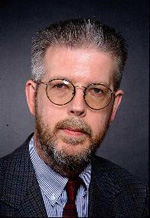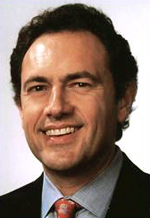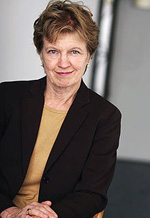Pioneers in assisted human reproduction will receive Gabbay Award Nov. 16
Three scientists who have made significant contributions in the field of assisted human reproduction will share the 12th annual Jacob Heskel Gabbay Award in Biotechnology and Medicine. The three will share a $15,000 cash prize and come to campus Monday, Nov. 16, to speak at a public symposium on entrepreneurship and biotechnology.
 |
| Alan H. Handyside |
Dr. Handyside’s research interests have focused on the areas of the cellular and molecular mechanisms of mouse and human preimplantation development; embryonic stem cells, their embryonic origin and use in transgenesis; and single cell genetic analysis particularly as applied to the human preimplantation embryo, and more recently, reproductive genetics. Handyside and his colleagues created the first “knock out” mouse models using embryonic stem cells for germline integration. In 1989, his lab achieved the first pregnancies following in vitro fertilization, embryo biopsy, and single cell genetic analysis in couples at risk of sex-linked inherited diseases.
His scholarship has been reported in about 150 original peer reviewed articles in a range of journals including Nature, Science, New England Journal of Medicine, Lancet, British Medical Journal, Development and Developmental Biology and in numerous reviews and published abstracts.
 |
| Gianpiero D. Palermo |
Dr. Kiessling is an international leader in reproductive technologies and stem cell research. Her groundbreaking Special Program of Assisted Reproduction (SPAR) allows HIV- positive men to safely father children. The program’s success has been due to a revolutionary methodology developed to test semen for HIV, and a patented process for safely transporting specimens throughout the world by mail.
As of October 2009, 101 healthy babies have been born from SPAR—a shining example of this pioneering science in action.
 |
| Ann A. Kiessling |
The ceremony honoring these individuals will be held at Brandeis University on Monday, November 16, 2009, and will include the free public Symposium on Entrepreneurship and Biotechnology at 3:45 p.m. in Gerstenzang Hall, room 123.





